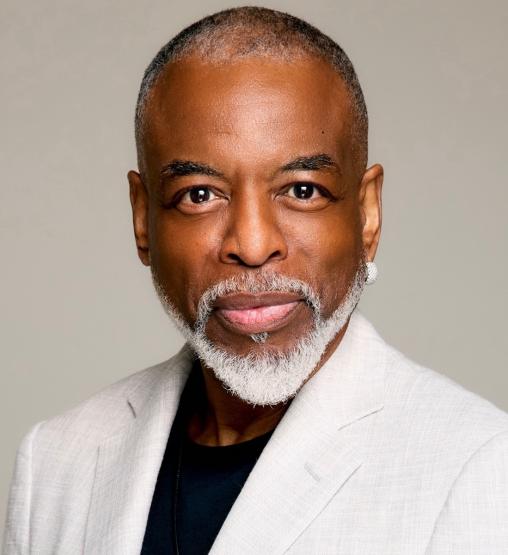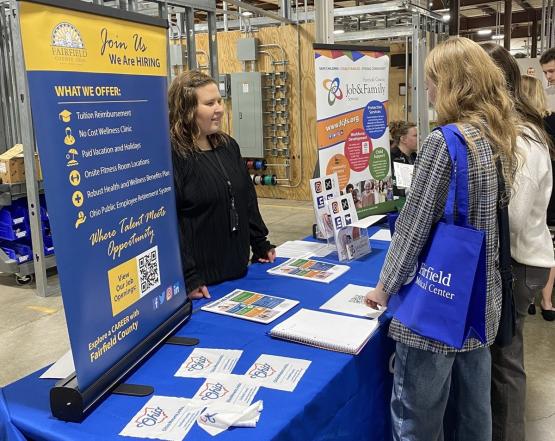
Artificial intelligence (AI) is the topic of the moment, especially in conversations about the future. Of course, the technology is here now, used for everything from streamlining workflows to composing music, and its sudden presence in all parts of daily life has everyone wondering how that presence will expand.
Will AI replace jobs? What does it mean to use AI ethically? And especially important for the OHIO community: How can current college students prepare for the inevitable sea change AI is ushering in?
These questions and more were at the center of the University’s recent AI Symposium held at Baker University Center. Featuring speakers from across industries, the symposium welcomed 1,400 attendees for a series of sessions on subjects ranging from entrepreneurship to filmmaking, healthcare to journalism.
For an event with such a wide range of topics, several messages were consistent:
- The future (and its careers) belongs to those who become skilled at using AI as a tool.
- The technology itself is only as good as those who are programming it.
- AI will not replace the need for human innovation, creativity and critical thought.
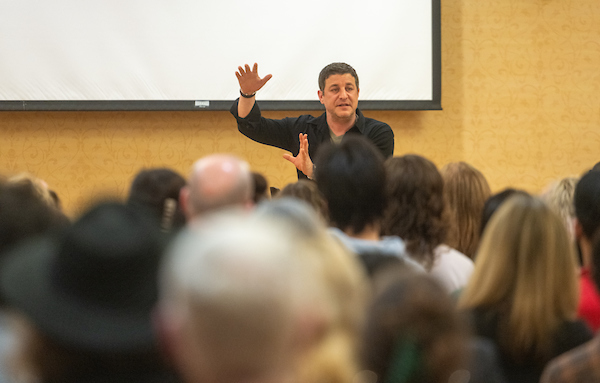
Matthew Rhodes, president of The Hideaway Entertainment, described AI's incorporation into the entertainment industry. “How do I find a great idea?" he said. "Is a computer going to come up with a better idea than a writer, director, producer?”
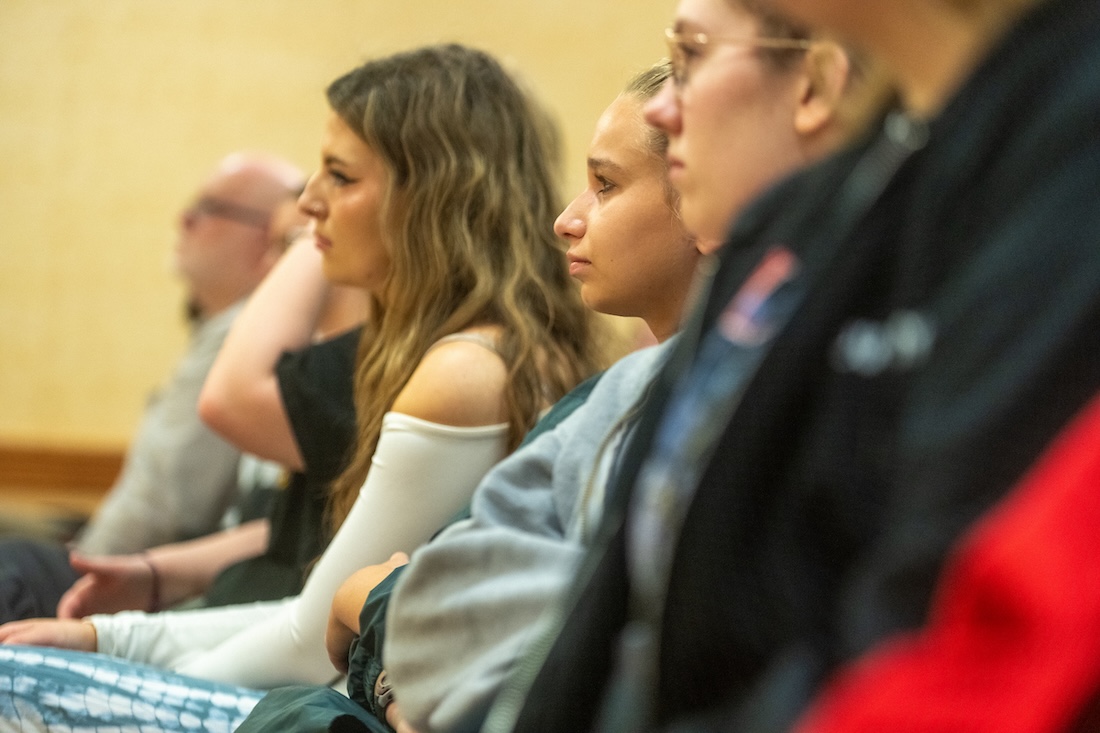
Rhodes reassured his audience that movies aren't going to happen "without human guidance."
'Know your tools'
A recurring theme of the symposium was that students should learn to utilize AI to their advantage. Presenters encouraged the audience to regard the technology as a valuable tool and develop curiosity about how it can help them do their work--whatever that work might be.
Natalie Zmuda, '02, is the director of conversational shopping at Amazon and editor-in-chief of Shopping AI. A journalism alumna, Zmuda was one of the event's keynote speakers and advised students to learn how to apply AI to whatever most interests them.
“We can’t imagine what future jobs will be because we didn’t even think AI jobs would exist 10 years ago," Zmuda said. "Look to the tech to help you amplify what you want to do. There are no limits in your career path.”
Matthew Rhodes, an OHIO alumnus and film producer, said it is helpful to focus on the technology's applications and compared AI platforms to the film editing software he learned as an undergraduate. He said that editing expertise set him apart in his own early job search.
“When you’re interviewing for jobs they’re going to want to know you know your tools,” Rhodes said. “Find the tool you love the most and learn it.”
Teaching the model
"I actually believe liberal arts majors are going to be more valuable moving forward because humanity becomes critical in trying to figure out how to use these tools," Paul Roetzer, founder and CEO of Marketing AI Institute, said in his introductory keynote.
Many symposium speakers returned frequently to the topic of programming, or teaching, the AI models along with the skill of knowing how to write effective prompts. They agreed that humans will need to apply critical and creative thought to the building of the models.
“Whoever does the prompt engineering, whoever does the reinforcement learning determines what version of humanity is represented by that model,” Roetzer said during a closing keynote conversation with Zmuda.
Zmuda said she draws on her journalism training to conceptualize effective AI programming.
“It’s basically like blocking and tackling journalism skills you learn," she said. "How to ask that source a question over and over again to get the answer that you want for the story you’re working on. It’s the same thing for an AI model.”
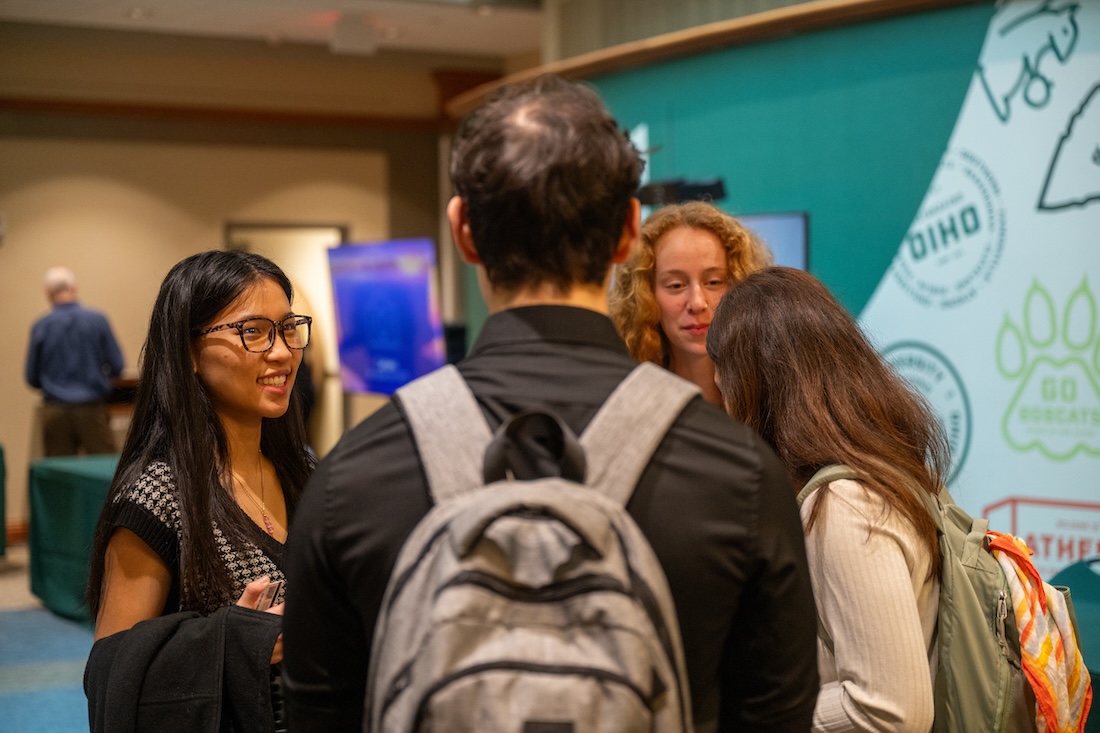
The AI Symposium had more than 1,400 attendees, most of whom were students from across academic disciplines. Keynote speaker Paul Roetzer had this advice for them: "Don't wait for the world to get smarter around you."
'We need your brainpower'
Presenters at the AI Symposium conveyed confidence that critical thinking and human creativity are not only still relevant in the age of AI, but will be more essential than ever to ensure that AI works as it’s supposed to.
During the session titled "Future-proofing your career," panelist Martin van der Berg described a trend he has seen where AI is used to replace "basic" jobs in customer service, which allows employees to move into positions that require higher-level thinking.
“What jobs are the most replaceable?" van der Berg said. "They are the repeatable jobs...It’s very exciting that AI can come in and replace those jobs. The basic jobs, they’re going to go away, and that’s great. We need all your brainpower for the more interesting jobs, and that’s really exciting to me.”
The need for human workers was a repeated theme across the symposium, with an emphasis on the exciting opportunities for recent college graduates who are just entering the workforce.
Catherine O'Shea, founder and chief operating officer of Narratize AI, described the landscape of opportunity she is seeing.
“AI is level-setting the playing field for jobs," O'Shea said. "Everybody’s learning at the same time...You can be the person that comes with the ideas.”
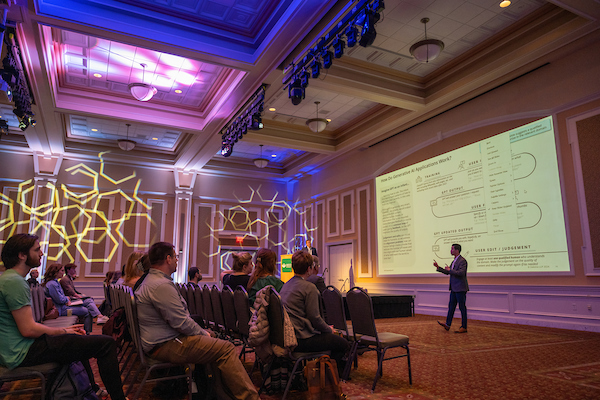
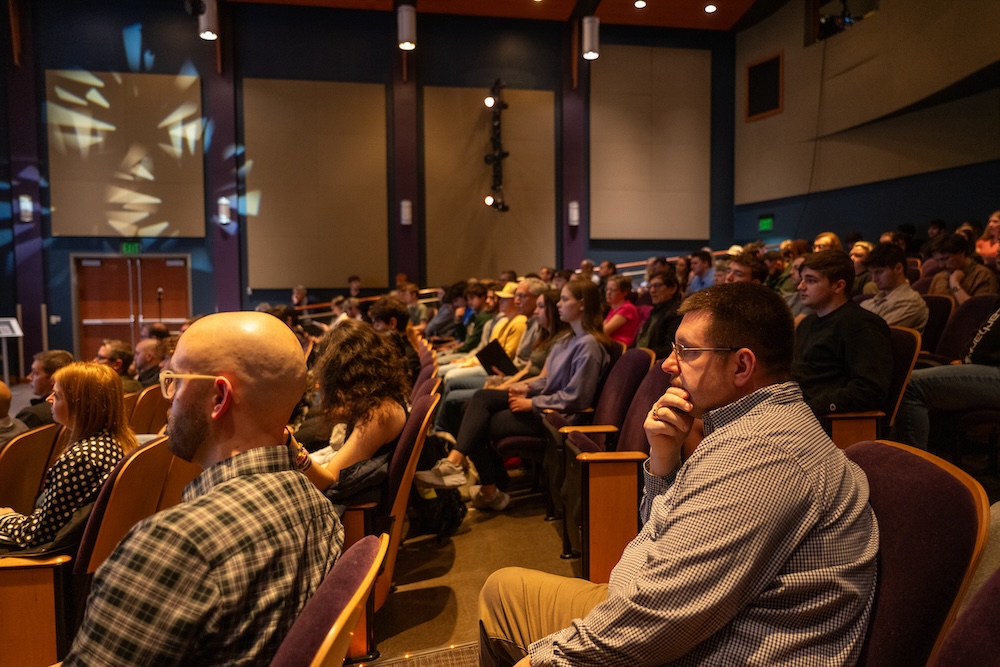
Just the beginning
The AI Symposium was just the beginning of OHIO’s leadership in the AI space.
Earlier this year, OHIO’s Board of Trustees moved to establish two new undergraduate degree programs: one in the artificial intelligence and another in cybersecurity engineering. Both degree programs must be reviewed and approved by the Ohio Department of Education.
In their courses and as extracurricular endeavors, students are studying the technology and applying what they learn in projects and real-world scenarios.
SAILD, a new student organization focused on AI, teaches its members how to use AI and how to navigate the issues surrounding the emerging technology.
The Scripps College of Communication’s Innovation Scholars recently hosted a group of representatives from local nonprofits, presenting ideas for how they can incorporate AI into their organizations.
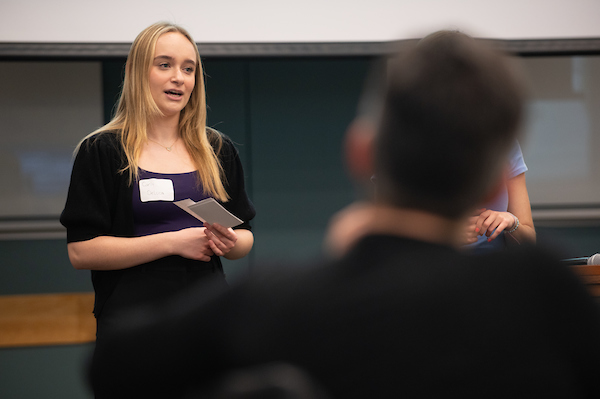
Innovation Scholars from the Scripps College of Communication presented to local nonprofit organizations about opportunities for incorporating AI into their processes.
Faculty members are engaging with AI through research and professional development opportunities like the Patton College of Education’s AI series which invites experts with a variety of perspectives to speak with the faculty.
Finally, Executive Vice President and Provost Elizabeth Sayrs has created an Academic AI Group with the purpose of developing “comprehensive recommendations for the integration of AI into the academic, research, academic administrative, and student success dimensions” of the University.
Including faculty from diverse disciplines and staff from key areas, the group will consult with stakeholders including alumni and industry leaders, and is expected to present its findings and recommendations by the end of spring semester 2024.

